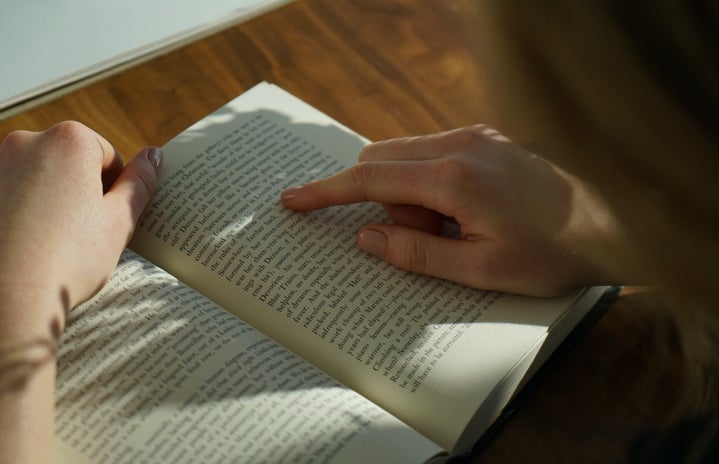I just reread all the Percy Jakson and Heroes of Olympys books by Rick Riordan and while I was at it, I decided to read The Kane Chronicles, the Magnus Chase -trilogy and Trials of Apollo as well. All these books take place in the same universe where ancient gods are real and interact with people, for example having children with them. I loved all the books, some more and some less but this article is not a review of them. Instead, I will discuss the author Rick Riordan and how he has grown as a person throughout the books especially from a feminist standpoint. With recent controversy surrounding authors like J.K. Rowling and her transphobic views, I believe Rick Riordan is someone whose example other authors should follow.
Note! This article contains minor spoilers for all the books mentioned above!
The protagonist of the Percy Jackson series is… Well, Percy Jackson, a white, cis, able-bodied male. Most other characters in the book are also white, cis and able-bodied. I believe that even Grover, who was played by a black actor in the films is white in the books. The books definitely have some badass female characters, such as Annabeth and Clarisse and at the end of the series Nico reveals that he is gay, though is doesn’t really affect anything yet at this point. Otherwise the books fall kind of flat when it comes to representation. It clearly is not something Rick Riordan took into consideration very much when writing this particular series.
The situation gets a lot better in the second series that takes place in the Percy Jackson universe, the Heroes of Olympus. I would say that the series has seven main characters: Percy, Annabeth, Hazel, Frank, Piper, Jason and Leo. Some other important characters include Reyna and Nico. There is a lot more representation regarding race: Hazel is black, Frank is Asian, Piper is Native American (and bi/pan, though that isn’t revealed until a lot later), Leo is Latino and and Reyna is Latina. Nico is still gay, though it still does’t affect anything until the very end of the series. This is okay since gay people are much more than just their sexuality, though it would be kind of nice to actually see some same-sex relationships since there are so many straight ones. Nonetheless, I would say that this series does a much better job on the representation front than the first one. Still no disabled or genderqueer representation, though.
The third series, the Kane Chronicles has two protagonists: Sadie and Carter. They are siblings whose parents were in an interracial relationship so Sadie appears as white and Carter black thought really they are both mixed. The whole series focuses on Egyptian gods so Middle-Eastern people are represented. We also get some disabled representation in the form of Bas, a god who is also a short person, though he is a god so it’s a bit of a Daredevil situation. There isn’t really much representation for LGBT+ people, though.
The fourth series, the Magnus Chase -series, follows a white, cis, able-bodied male called Magnus. However, the situation is not as bad as it seems. Out of his two sidekicks, one is deaf and one black. His mentor is a badass muslim woman and his love interest is non-binary as well as his/her mother. And not just that, but their identities are actually explored a lot more than in the former books. Now, if you write about identities that you have no first-hand experience on you have to be a little bit careful so you won’t accidentally offend the communities you are trying to represent. There are a few scenes that I would have personally written a little bit differently, such as when Magnus and Alex (the love interest) kiss and Magnus wonders whether that makes him gay. It maybe erases Alex’s fluid identity a little bit since Magnus could have also contemplated on a bi or pan identity, though not wanting to decide on a label is also valid. In the end, though, I’m really glad that Riordan decided to introduce a non-binary character to the series since I believe having representation is more important than it being perfect. After all, the representation in the series seems very good and authentic in general and I believe Riordan has really put in the effort to find out about the different identities he aims to represent.
The last series by Riordan for now is The Trials of Apollo. The main character is the god Apollo, who is bisexual. The side characters vary a lot and include almost all of the main characters from The Heroes of Olympus. Nico, who is now in a relationship with one of Apollo’s sons, is also a prevalent character. We see several casual same-sex relationships throughout the series and Piper is also revealed to be interested in girls. There could be more disabled and non-binary representation, but I do really enjoy seeing several happy and stable gay couples within the series. Riordan has also announced an upcoming book series that will focus on the relationship of Nico and his boyfriend Will, which is amazing.
So, when Rick Riordan started writing his books, the characters were in general very white, cis, straight and able-bodied. The books were still enjoyable but definitely lacking in representation. Instead of trying to defend this lack of representation, Rick Riodan decided to do better. Now queer, disabled and non-white kids can find themselves in his books which is super important. Riordan acts as an example to any writer that it’s okay if your characters haven’t always been of various backgrounds, but instead of trying to justify this you can do research and add more diverse characters to your next books. Follow Rick Riordan’s example, do better.


